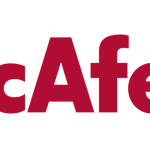- Industry: Software
- Number of terms: 9143
- Number of blossaries: 1
- Company Profile:
Often legitimate software (non-malware) that may alter the security state or the privacy posture of the system on which they are installed. This software can, but not necessarily, include spyware, adware, keyloggers, password crackers, hacker tools, and dialer applications and could be downloaded in conjunction with a program that the user wants. Security-minded users may want to know about such programs and, in some cases, have them removed.
Industry:Internet
A scheduled examination of selected files to find a virus or other potentially unwanted code. Scans can take place immediately upon user request, at a scheduled future time, or at regularly scheduled intervals.
Industry:Internet
A type of protocol employed by a computer’s operating system to communicate information to the user or to other systems. It is commonly used to send error messages, but also delivers other types of messages.
Industry:Internet
A program that stays in the active RAM of a computer while other programs (such as accessory software, activity monitoring, and resident scanning software) run. An activity monitor can check for memory-resident functions. Viruses often attempt to “go resident. ”
Industry:Internet
This threat includes a virus or worm using multiple infection techniques. This can include exploiting program vulnerabilities, Trojan behavior, infecting files, Internet propagation routines, network-share propagation routines, and spreading with no human intervention.
Industry:Internet
Software used by anti-virus and anti-spyware programs to scan a user’s systems for viruses and other malware using . DAT files.
Industry:Internet
A method of overfilling a software buffer insert and executing the attacker’s code. In a remote buffer overflow attack, the aim is to transfer the attacker’s code to the attacked machine and subsequently run this code. In a local buffer overflow attack, the aim is elevating the attacker’s privileges.
Industry:Internet
An account on a computer that grants the user privileges to install software, delete files, and manage user accounts. If an administrator is logged into a system when it becomes infected, the virus can affect the same functions that the administrator can control, such as installing new applications, deleting files, and modifying data.
Industry:Internet
A method of asynchronous event notification supported by the simple network management protocol (SNMP).
Industry:Internet
A verification method used to prove identity by many cryptographic systems. Also, many websites use certificates to authenticate that the site is genuine. It contains a user’s name and public key.
Industry:Internet
